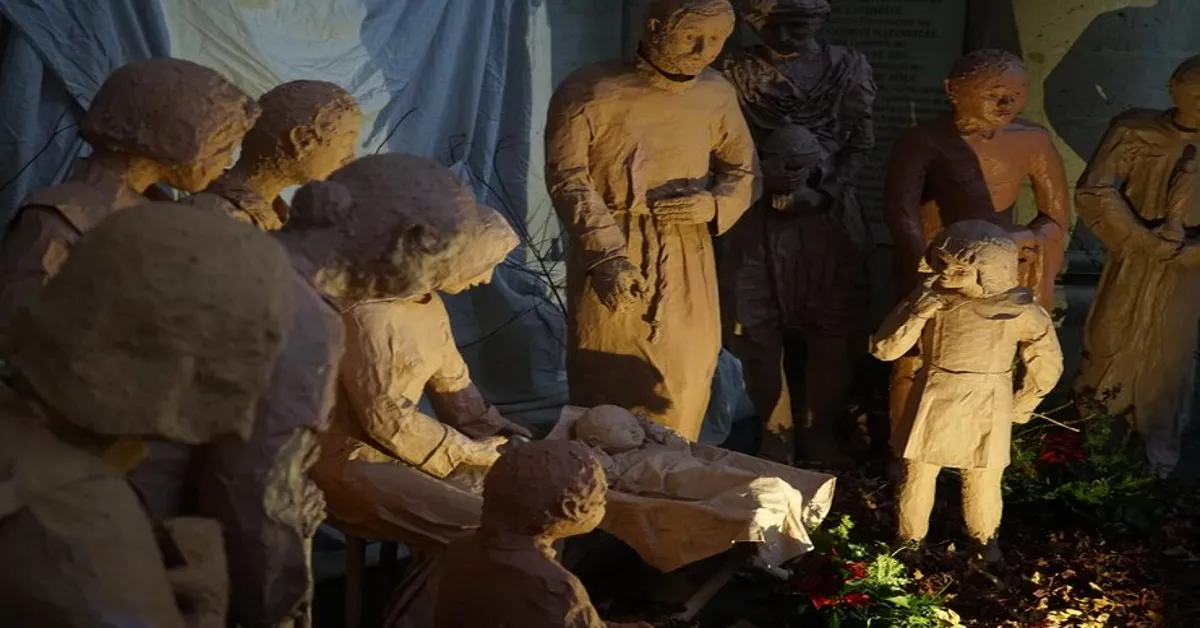It is an intensively detailed article that explores the multi-dimensional connotations of the keyword Prosecchini by giving a combined focus to the speculations of etymology, cultural extrapolation, historic escapade, and imaginative narration. The aim is not simply to define it, but to look at what it might suggest, what it might imply within the span of time, space and human experience. As a genealogist, a writer, a brand strategist, or a curious person, the post is intended to make you reflect, be creative, and have an interest in a new understanding of the power of names.
Introduction
The term Prosecchini sounds foreign but mysterious, it can even be associated with some cultural confusion along with linguistic interest. To others it can be a last name of Italian origin. In other people this can cause one to think about food, art, literature or even history. The grandeur of such words is the fact that they are open-ended they are an encouragement to think and consider, contemplate and read into them.
Names like Prosecchini are more than phonetic pattern or alphabetic sequences and can often serve as a bearer of legacy, tradition and even often untold history. This is a blog post in which we are going to explore the world of Prosecchini and where we might follow possible etymologies, cultural implications, modern uses, historical anecdotes and imaginative possibilities. It could mean a surname, a small village hidden in a remote Italian province, a fictional character in a novel, or artisan brand, but Prosecchini is something worth some spotlights.
In a world growing hungrier by the day in matters of identity, personalization and cultural base, names such as Prosecchini have got a relevance. They take us to someone else and sometime anchoring us with our own roots that we are mistakenly ignorant of. It is a journey as well as destination of this exploration. and we can take the word, Prosecchini, and have it spread out its string of meanings, linguistic, sociological, historical, and speculative.
The Linguistic Roots of Prosecchini
The starting point is the language to get to know Prosecchini. ItalianThe suffix -ini is widely used to indicate small size, love or kinship. In Italian surnames it is frequent, in an allusion to place, family or ancestry. The pre- fix Prosec- may awaken the image of the popular sparkling wine Prosecco of Veneto, Italy. Perhaps, Prosecchini is then a nickname or a cute turn of something pertaining to Prosecco? Or is it a name which does not indicate any relation with sparkling wine, but is the product of some distinct and more primitive Latin origin?
The Italian surnames usually characterize professions and places of origin, nicknames and sometimes characteristics. Such names as Rossi (the red one), Ferrari (blacksmith or workman in iron) or Conti (counts or nobility) are not an exception. It can well be that Prosecchini is the product of such a tradition. If, then, we sound-fission it and meaning-fission it, Prosecc- may stand parallel to prosecco or prosecuzione (continuing) and -chini may give that suggestion of family or diminutiveness. This fanciful name linguistically might mean little continuations, or the babies of Prosecco, or a family connected by a root that has been handed down through generation to generation.
However, language does not stay the same and neither will surnames. A good number were garbled, naturalized or converted to during migrations, clerical errors and anglicizations. Such a surname, as Prosecchini may, at some time or another, have varied upon some other, viz, Prosecchi or Procaccini, established by degrees, according to the accreditation of dialects, regions, or favoured foreign languages.
Prosecchini as a Family Name
Suppose that Prosecchini be a surname, then it must have had a prolific ancestry. Italy has been a patchwork of provinces all with their own naming systems. Families were homespun after trades, to their nearness to objects of local prominence, or even after peculiarities of character. A family called Prosecchini could be originally located in the countryside of a wine-making area, perhaps, vineyard laborers or wine dealers. Over the generations, they were simply identified with the product which they assisted to be developed.
There can be genealogical records, which can at times be of a limited help, to indicate the presence of Prosecchini in minor communes or scattered records in regional archives. Such surnames tend to be more common in close communities and roots them in community memories, oral traditions, and written histories. It is in these environments the name starts not only to count as a label, but as a tale. A family might have been called landowners, vintners, builders or scholars, even artists and all these terms could remain in the common memory of a populace.
contemporary members of the last names Prosecchini that there were, may end up finding their genealogy through census data, parish books, voyage certificates or even biological databases. They can find links to historic events whether of combat, acquisition of a territory or culture foundations. Prosecchini may merely be a surname in the globalized world, but it might be a rope that links the past and present in very profound personal ways.
Cultural Representations and Symbolic Value
Names, and particularly, names that are unique and suggestive are, often, something more than names, as they become a shared part of the cultural imagination. Prosecchini could be the man of a novel (he could have been both a silent philosopher in the uplands of Tuscany, or a bohemian anarchist in postwar Rome). The name has a hint of romanticism, a beat of lyrical words which welcomes narration. In fiction or semi-fictional contexts Prosecchini may be placed alongside determination, creativity, or secretiveness. It may refer to an ancient family of artisans who are violin or mosaic makers and each generation receives such meticulous art form after another.
It may be sewn up on labels of handmade shoes, jewelry or chocolate as a sign of the responsibility to details and tradition. Modern branding might reframe a symbolic value of Prosecchini as well. The world griped by the desire to be real has a wish to have roots that a brand named Prosecchini can easily tap into and find a niche. The names of Italian wines, as well as new boutique fashion brands resemble the names of something old but beneficial, and at the same time strategic. They provide credibility, sophistication, European aestheticism that would be treasured in the international markets.
Prosecchini in Historical Contexts
We will suppose a fictitious but not impossible case: the family of the Prosecchini, central-Italian, who have lived in the upheavals of the Renaissance, in the struggles of unification, or the industrial revolution. And their tale may run for a time with the tale of Garibaldi, or with the Medici, or perhaps they were unobtrusive recorders of domestic life in a civilized Italy. The historical record may be found to have a Lorenzo Prosecchini, a scribe in Florence or Giulia Prosecchini a nurse in the World Wars.
Having these fictional yet contextually plausible characters provide some dimensions to an otherwise forgotten or obscure name. Names take on their strength in these terms of historical fiction, the reconstructed memory. In addition there are names that change as they move across the borders such as Prosecchini. The name could have been shortened, changed or Anglicized by Italian immigrants to America, Argentina, Canada or Australia. The former Prosecchini may be today Proskin, or Proshen, or something quite different altogether. It is the amazing path that diasporic people, identity, and the culture have undergone.
Works of art and creativity in reinterpretation
Names can be based on creativity besides any historical or linguistic foundation. Artists, moviemakers or writers tend to explore names such as Prosecchini to describe atmosphere, location or character. One can easily imagine Prosecchini creating a fictional town in a magical realist novel – full of strange yet endearing characters, a main piazza and the wine festival that unites the entire village. Contemporized visual artists could name an entire series of images after it, including abstracted depictions of vineyards, hands forming barrels or sunset hues of gold on olive groves: the Prosecchini Series.
A director may name a mini-independent film Prosecchini, depicting a time-sad tale of young people, nostalgia, and spent mid-summer in the Italian hinterland. Music setters can elaborate it to a sonata, which then can be a piano piece, named after Prosecchinis, a sonata of quiet respect of a picturesque village that moves slowly. When a name is suggestive of a place, or emotion, or something, anything is possible. In this respect, Prosecchini is not only a name; it is a symbol, a muse, a mirror.
The Imagined Village of Prosecchini
Ok, so lets go one step further and paint a complete picture. you might imagine Prosecchini, not as a man or a brand, but as an imaginary village between Umbria and Tuscany in the rolling hills. There are cobblestone streets leading to the small family-owned trattorias. The old fountain of worn Latin inscriptions is at the centre of the village. Children play bicycles around ancient walls and gossiping old men meet in the square to play bocce and talk politics. There are lavender fields, olive oil and perhaps most notable a very specific kind of wine, a light red wine with a violet smell with some nostalgia to it.
Every August, the Festa di Prosecchini is held where many people come and visit. The folk music, dance, as well as the traditional crafts come to the fore. It is not just a party of food and drink but community and continuity. Prosecchini exists in this realistic, yet imaginary world and not just in name of a man Prosecchini, he exists as a landscape, culture, memory. And even when it is not in a single map, now it is in our minds, vestigated and created with language, curiosity, and word-of-mouth.
Contemporary and Digital Traces of Prosecchini
The digital age shows a tendency to find surnames and keywords unexpectedly. A momentary search could encounter social media accounts, acquirings of domains, or posts in Internet-based genealogy boards. Prosecchini can easily be the name of a net artist, a blog about an Italian heritage, or a family site recording the history of migration and memory.
Through this online life the definition of existence is redefined. Although Prosecchini is uncommon, the reverberations to it are kept alive by digital footprints, online archives, and cultural references. With the encouragement of the internet in the democratization of history and ancestry, even names so obscure can get a stage. They can be reclaimed, honoured and re-purposed.
Conclusion
The voyage into Prosecchini is a treat of language, cultural fantasy, history and story-telling art. Real surname or symbolic concept, imaginary setting or an artistic catalyst, as well as some of the most unknown of words, Prosecchini demonstrates that sometimes a treasure trove of meaning lies locked deep within the most unrecognizable of words. We have seen how its may be rooted in language and in naming practices, conjectured on its genealogy and on its cultural precedents, envisioned it as village and as thought, and welcomed its evocative powers.
Names matter. They become the openings between the past and the future, between personal identity and general course of events. As spectacular an example as Prosecchini is, it is a good reminder that no name is without a story just waiting to be told — or found. It is an ode to the forgotten, the made up and the human.
When we live in a day and age where meaning is short-lived and instant-gratification and materialism are the order of the day, we have the chance to indulge in the exploration of something as basic as a name, and we have a chance to slow our pace down and touch something more lasting. Prosecchini is more than a word, it turns into a token of heritage, creativity, continuity, and possibility. It dares us to look deeper, to search more deeper and to imagine more.
Therefore, whatever the case may be whether you are a direct descendant of Prosecchini or an imaginary location implemented into your literature, or maybe just a pretty word that catches your attention, use it as a lesson that both the language and the culture are an organic entity. Their growth is intricatly intertwined with ours, their development through us, and their survival owes to our shared wish to discover the meaning in those things which relate us. The rest is, Prosecchini is no longer an inanimate object, it is a story in search of a person to narrate it by the time you come around.
Frequently asked questions (FAQs)
Q1 Does Prosecchini actually represent a surname?
A: Prosecchini is not so common in the country, but it can find its place in the system of the Italian surnames and thus, it can be there or a version of other ones of the kind. It is also that it is not common or that it is localized.
Q2: Is Prosecchini connected with Prosecco?
A: It has a linguistic root though, there is no direct thing that ties the two. It might indicate either cultural or poetic relations, though in a speculative- or a fictional context such coincidence would be taken as a rule.
Q3: Can we use Prosecchini as brand name?
A: Absolutely. Its European style is definite and can be easily used as a wine brand, artisan products, fashion or culture brand.
Q4 Do villages exist with the name Prosecchini?
A: No fancied villages of that name are well known, but we might use it fictionally or symbolically to denote an imaginary Italian town.
Q5: What is the point of investigating such names as Prosecchini to such extent?
A: the careful study of names reveals the scenery of culture and history and signs not usually remarked. Even unknown words can be made to have a meaning by pondering and imaginative questioning.

